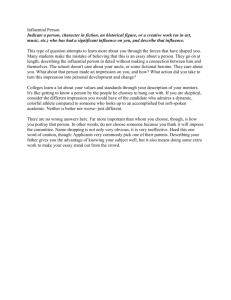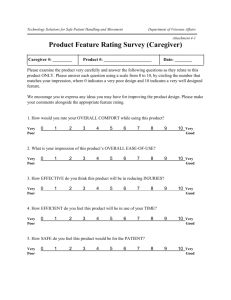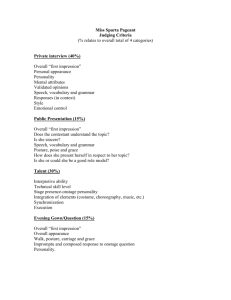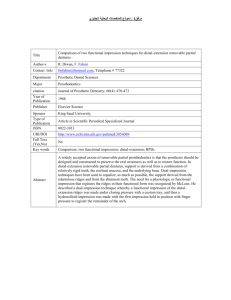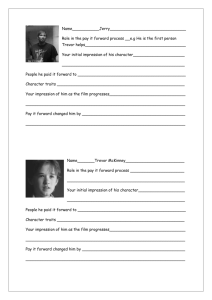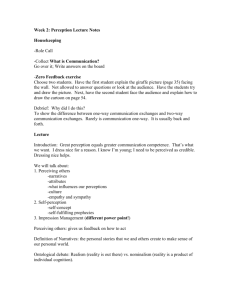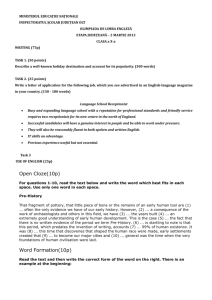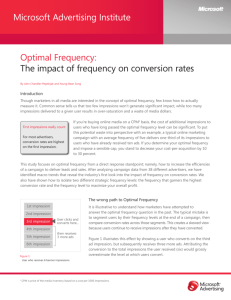Impression Management Definition Impression management refers
advertisement
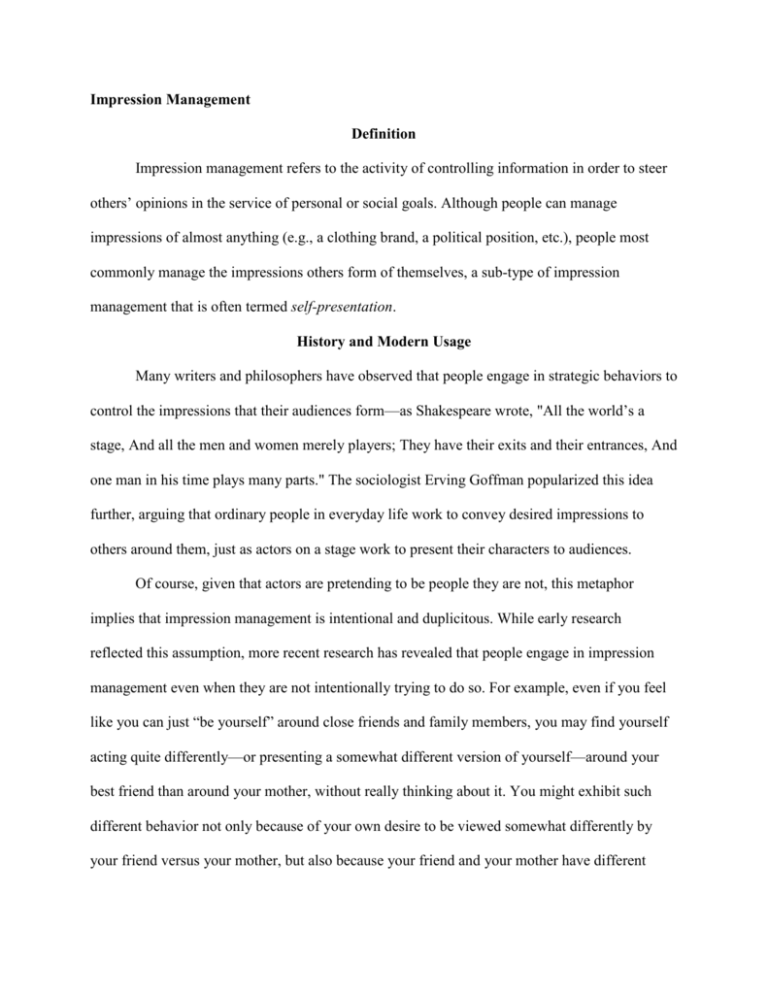
Impression Management Definition Impression management refers to the activity of controlling information in order to steer others’ opinions in the service of personal or social goals. Although people can manage impressions of almost anything (e.g., a clothing brand, a political position, etc.), people most commonly manage the impressions others form of themselves, a sub-type of impression management that is often termed self-presentation. History and Modern Usage Many writers and philosophers have observed that people engage in strategic behaviors to control the impressions that their audiences form—as Shakespeare wrote, "All the world’s a stage, And all the men and women merely players; They have their exits and their entrances, And one man in his time plays many parts." The sociologist Erving Goffman popularized this idea further, arguing that ordinary people in everyday life work to convey desired impressions to others around them, just as actors on a stage work to present their characters to audiences. Of course, given that actors are pretending to be people they are not, this metaphor implies that impression management is intentional and duplicitous. While early research reflected this assumption, more recent research has revealed that people engage in impression management even when they are not intentionally trying to do so. For example, even if you feel like you can just “be yourself” around close friends and family members, you may find yourself acting quite differently—or presenting a somewhat different version of yourself—around your best friend than around your mother, without really thinking about it. You might exhibit such different behavior not only because of your own desire to be viewed somewhat differently by your friend versus your mother, but also because your friend and your mother have different expectations or demands regarding what sort of person you should be. Thus, engaging in impression management can help to ensure that social interactions go smoothly. Impression management is not risk-free, however. Becoming excessively concerned over others’ opinions can cause anxiety, thereby increasing health problems. And engaging in highly deceptive forms of impression management runs the risk that people will see through the act (although “getting caught” seems to be the exception rather than the rule). Conversely, impression management may sometimes be too effective; for example, if you try to act like a rebel in one situation, your impression management may carryover such that you start to see yourself as relatively more rebellious and behave in a rebellious manner in subsequent situations. Of course, to the extent that people generally try to put their best foot forward, such carryover effects of impression management may have positive consequences. Impression management can also be used pro-socially to benefit friends. People commonly describe their friends in ways that help to support their friends’ desired images. Thus, impression management can be undertaken in the service of self-serving or more other-oriented goals and represents a central component of everyday social life. Elizabeth W. Dunn & Noah Forrin Further Reading: Schlenker, B. R. & Pontari, B. A. (2000). The strategic control of information: Impression management and self-presentation in daily life. In A. Tesser, R. Felson, & J. Suls (Eds.), Perspectives on self and identity (pp. 199–232). Washington, DC: American Psychological Association.
